
Protecting others and yourself from crime
Starting from "Law"
Let's think about "righteousness"
Starting from "Law"
Let's think about "righteousness"
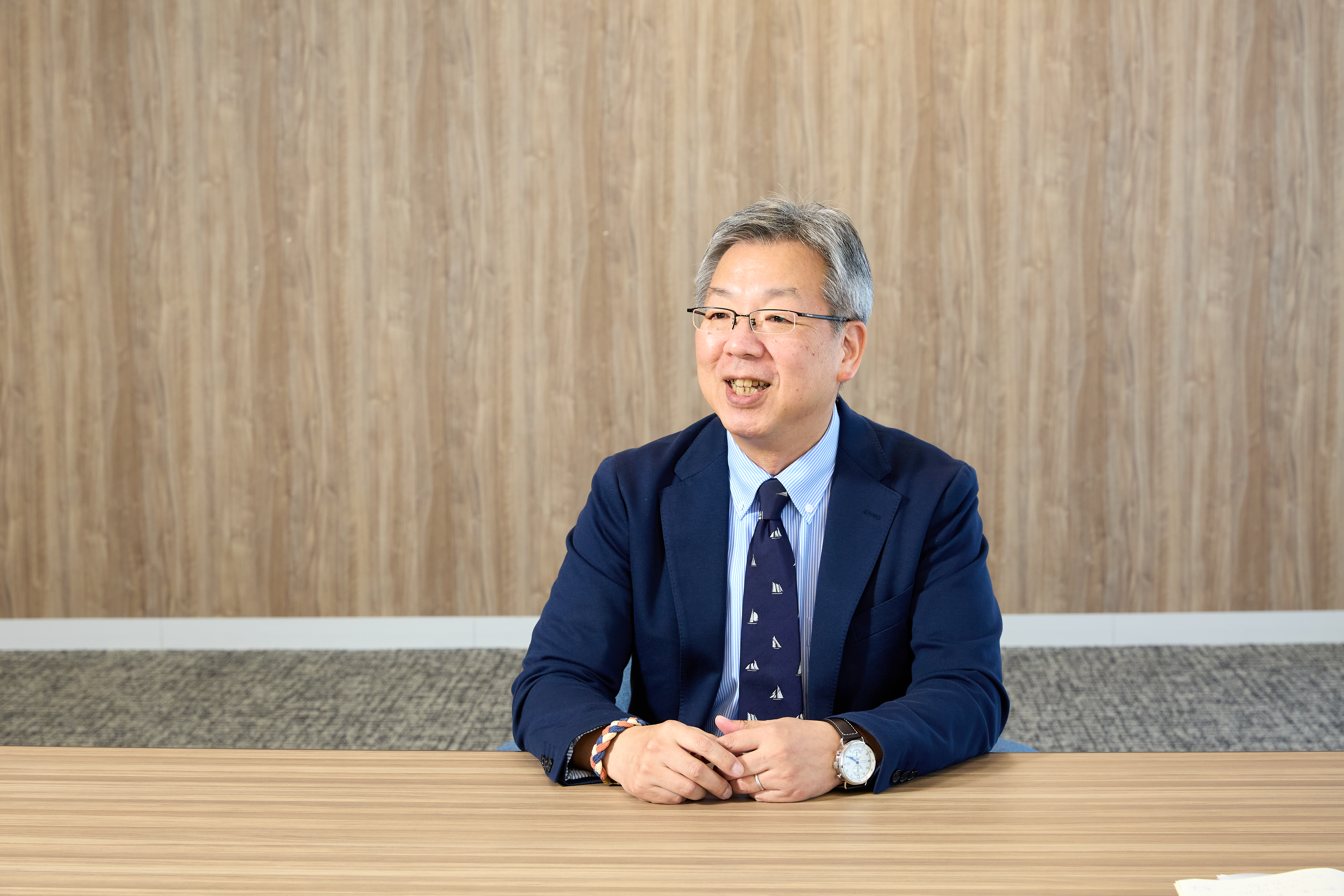
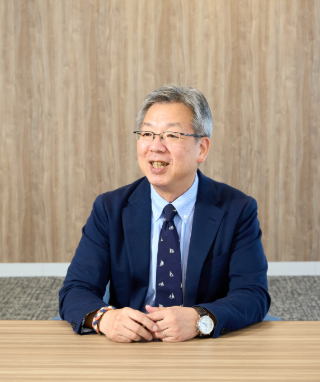
#Asia University research
DANJO Hirofumi Professor
Faculty of Law Department of Law
2024.10.01
In the series "If it's not interesting, it's not academia!", we introduce the research content and anecdotes of faculty members at Asia University. The 10th installment features Professor DANJO Hirofumi Faculty of Law Department of Law.
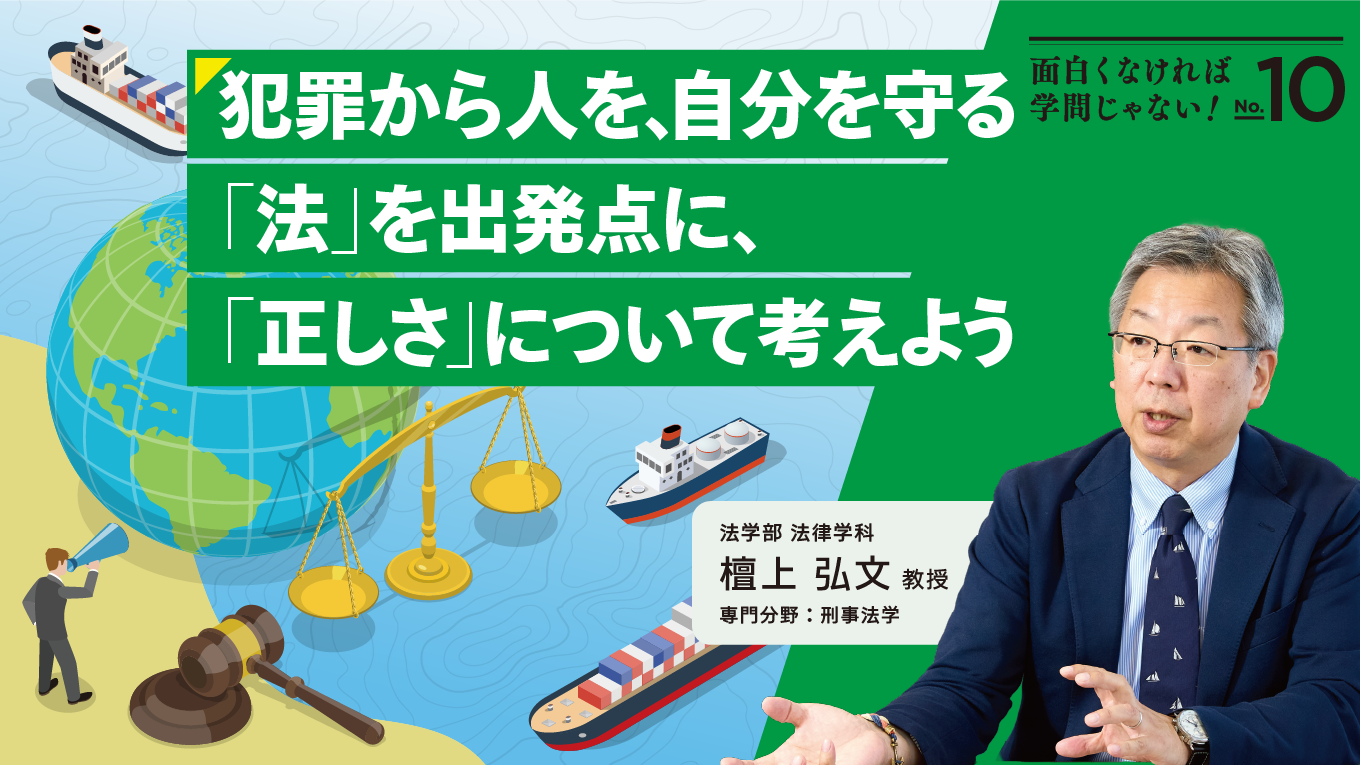
The reason why a college student who was fascinated by American culture decided to re-study criminal law
After returning to Japan, I studied literature and American history at university, focusing on two fields of interest, and wrote Bachelor’s Thesis on the 19th century author Henry David Thoreau. Thoreau is the author of "Walden," which describes a self-sufficient life on the shores of a lake surrounded by nature, and is also known as a thinker and naturalist. With his sharp insight into mass production and consumer society, he was a pioneer who made observations that are relevant to current environmental issues, and I was fascinated by his critical eye toward civilized society.
At that time, I once dreamed of making a documentary program that would monitor power in the mass media. However, I soon realized that I lacked the tools to fight social injustice and the tyranny of public power. That's when I remembered the "Criminal Law" Lecture I took at the Faculty of Faculty of Law, which I took using the cross-department course enrollment system. The content of Lecture was interesting, and I came to the realization that "law," which realizes a fair society, would be a major foundation for my work in the world. So after graduating from the Faculty of Letters, I enrolled in Faculty of Law at the same university as Bachelor of Arts, and continued to research mainly "Criminal Procedure Law" through my master's and doctoral studies Graduate School.
Security in the maritime border area will be protected by the theory of "law"
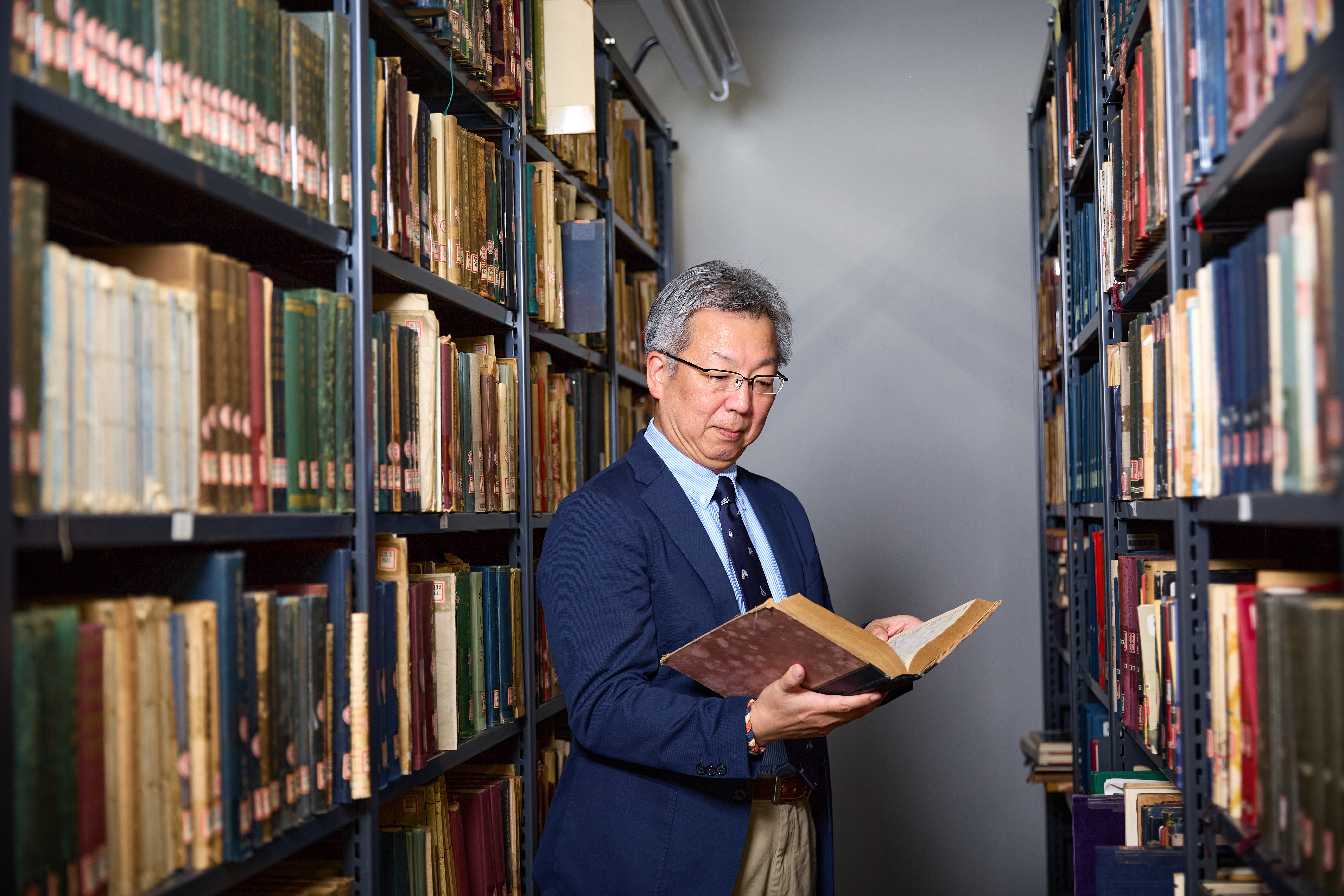
After completing my doctoral program, I heard from my seniors that there was an opening, so I became an instructor in charge of criminal procedure law classes at the Japan Coast Guard Academy. The Japan Coast Guard is a national civil servant (Japan Coast Guard, an external bureau of the Ministry of Land, Infrastructure, Transport and Tourism) who is assigned the duties of a "maritime police officer", and the Japan Coast Guard Academy provides education to train senior officers. Navigation, institutions, communications, etc., are taught by alumni, but law may be taught by ordinary university research like me.
At the Japan Coast Guard Academy, I gave cadets a Lecture on the Criminal Procedure Act, and also worked on a research on maritime crimes and border and territorial sea security issues that Coast Guard officers face every day.
The duties of the Japan Coast Guard in Japan's territorial waters are extremely challenging. Japan does not have a large territorial area of about 380,000 square kilometers (61st in the world), but its territorial sea and exclusive economic zone (EEZ), where fishing and natural resource extraction can be exploited, are about 12 times the territory and the sixth largest in the world. The coastline is about 35,000 km long.
For Japan, which is surrounded on all sides by the sea, the sea is an important transportation route for trade and transportation, but it is also a border with neighboring countries. The same is true on land, but the border area is a place where various criminal activities such as smuggling, smuggling, poaching, and terrorism are likely to take place. In recent years, Chinese fishing vessels have been illegally operating in Japan's EEZ around the Senkaku Islands in Okinawa Prefecture, and Chinese research vessels have set up buoys floating on the surface of the water under the pretext of oceanographic research.
The Japan Coast Guard is tasked with guarding the borders and territorial waters to crack down on such politically difficult illegal activities. In order to fulfill this mission, it is indispensable not only to have so-called weapons but also to be armed with theories based on "law". I was in charge of classes such as the Code of Criminal Procedure to help them carry out their duties correctly.
At the Japan Coast Guard Academy, I gave cadets a Lecture on the Criminal Procedure Act, and also worked on a research on maritime crimes and border and territorial sea security issues that Coast Guard officers face every day.
The duties of the Japan Coast Guard in Japan's territorial waters are extremely challenging. Japan does not have a large territorial area of about 380,000 square kilometers (61st in the world), but its territorial sea and exclusive economic zone (EEZ), where fishing and natural resource extraction can be exploited, are about 12 times the territory and the sixth largest in the world. The coastline is about 35,000 km long.
For Japan, which is surrounded on all sides by the sea, the sea is an important transportation route for trade and transportation, but it is also a border with neighboring countries. The same is true on land, but the border area is a place where various criminal activities such as smuggling, smuggling, poaching, and terrorism are likely to take place. In recent years, Chinese fishing vessels have been illegally operating in Japan's EEZ around the Senkaku Islands in Okinawa Prefecture, and Chinese research vessels have set up buoys floating on the surface of the water under the pretext of oceanographic research.
The Japan Coast Guard is tasked with guarding the borders and territorial waters to crack down on such politically difficult illegal activities. In order to fulfill this mission, it is indispensable not only to have so-called weapons but also to be armed with theories based on "law". I was in charge of classes such as the Code of Criminal Procedure to help them carry out their duties correctly.
The Japan Coast Guard enforces the law not only in the waters around Japan, but also in faraway foreign lands.
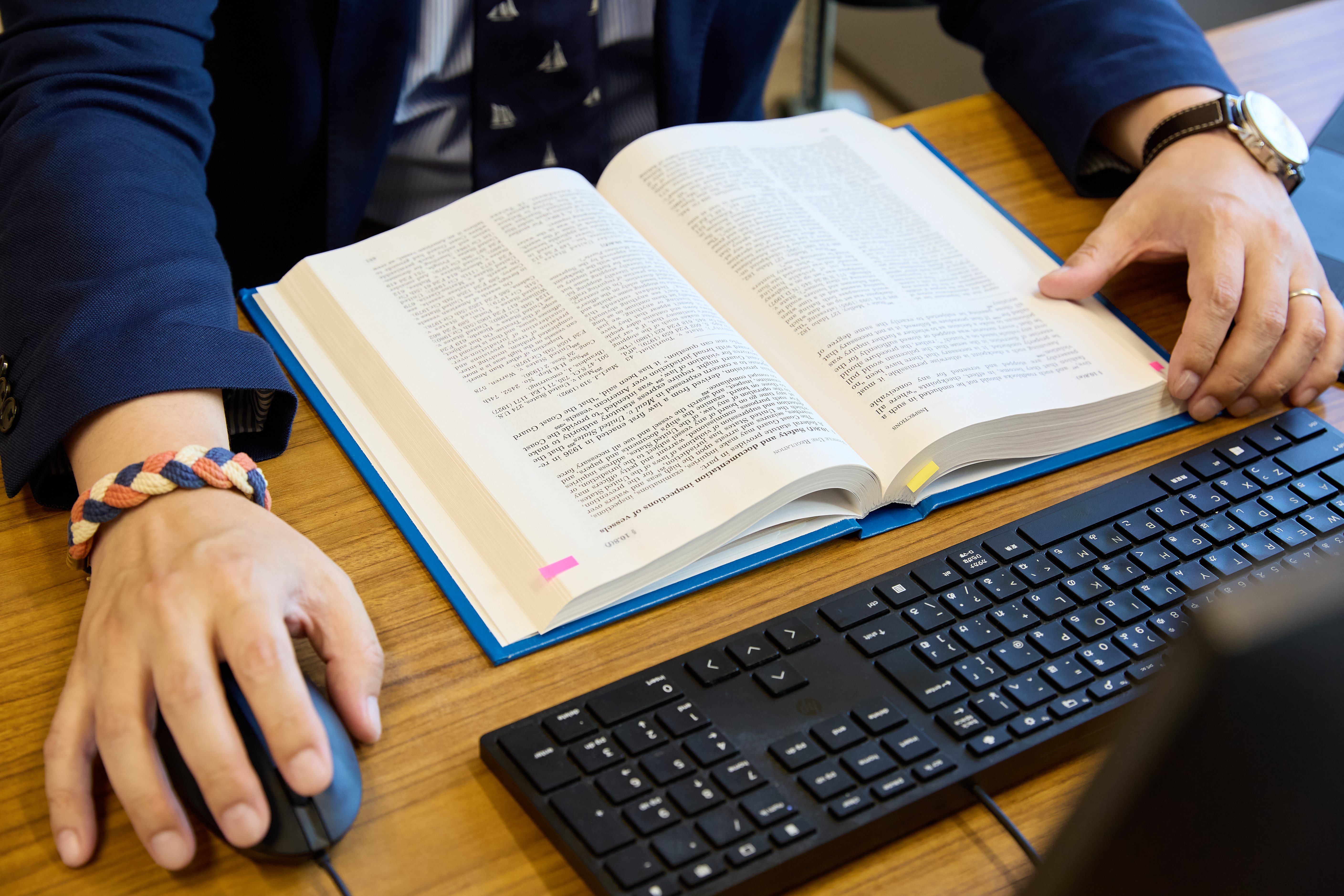
During my time as an instructor at the Japan Coast Guard Academy, I had the opportunity to visit the Philippine Coast Guard, which is supported by the Japan International Cooperation Agency (JICA). The Philippines and Japan Coast Guard work together to combat piracy in the waters of Southeast Asia (frequent in the Straits of Malacca, for example).
One well-known example of criminal piracy in these waters is the incident in October 1999 involving the Panama-registered cargo ship Alondra Rainbow, which departed from an Indonesian port bound for Japan. It was a brutal incident in which the pirates threw the crew overboard in lifeboats and then seized the entire ship. Fortunately, all the crew members who had drifted in the rubber boats were safely rescued by a fishing boat off the coast of Phuket, Thailand, and the Alondra Rainbow was captured by the Indian Coast Guard. This incident has led to the building of a relationship between the Japan Coast Guard and the Indian Coast Guard.
For Japan, too, working with neighboring countries to ensure safe navigation in these waters, which are extremely important for trade, is in our national interest. For this reason, we hold meetings and exchange information with neighboring countries on anti-piracy measures, and also conduct joint anti-piracy training.
Piracy occurring in the Gulf of Aden and off the coast of Somalia, between the African continent and the Arabian Peninsula, has long been a problem for the international community. Many countries have dispatched anti-piracy units to the area, and Japan, where tankers and other vessels have been attacked, has also dispatched an anti-piracy unit from the Maritime Self-Defense Force. Did you know that Japan Coast Guard officers are on board the escort vessels of this Self-Defense Force unit? Self-Defense Force personnel do not have judicial police powers, so it is the Japan Coast Guard officers who carry out judicial procedures such as arresting pirates. This may be a fact that is surprisingly little known.
One well-known example of criminal piracy in these waters is the incident in October 1999 involving the Panama-registered cargo ship Alondra Rainbow, which departed from an Indonesian port bound for Japan. It was a brutal incident in which the pirates threw the crew overboard in lifeboats and then seized the entire ship. Fortunately, all the crew members who had drifted in the rubber boats were safely rescued by a fishing boat off the coast of Phuket, Thailand, and the Alondra Rainbow was captured by the Indian Coast Guard. This incident has led to the building of a relationship between the Japan Coast Guard and the Indian Coast Guard.
For Japan, too, working with neighboring countries to ensure safe navigation in these waters, which are extremely important for trade, is in our national interest. For this reason, we hold meetings and exchange information with neighboring countries on anti-piracy measures, and also conduct joint anti-piracy training.
Piracy occurring in the Gulf of Aden and off the coast of Somalia, between the African continent and the Arabian Peninsula, has long been a problem for the international community. Many countries have dispatched anti-piracy units to the area, and Japan, where tankers and other vessels have been attacked, has also dispatched an anti-piracy unit from the Maritime Self-Defense Force. Did you know that Japan Coast Guard officers are on board the escort vessels of this Self-Defense Force unit? Self-Defense Force personnel do not have judicial police powers, so it is the Japan Coast Guard officers who carry out judicial procedures such as arresting pirates. This may be a fact that is surprisingly little known.
In an age of technological advancement, the ability to judge what is "right" becomes increasingly important
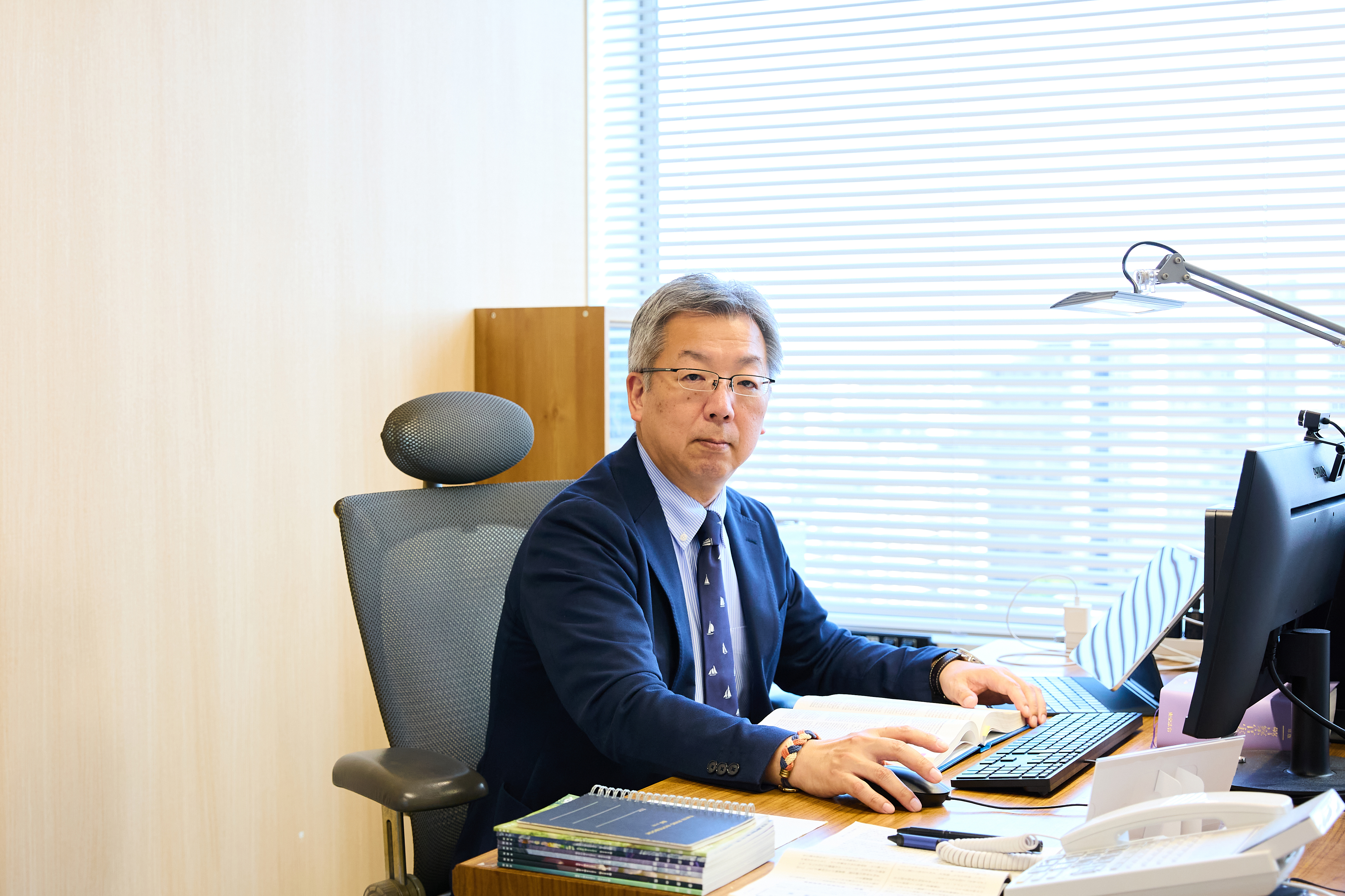
While serving as an instructor at the Japan Coast Guard Academy, I came to fully understand the harshness and frustrating nature of maritime security in border areas where other nations' nationals are also involved. For example, even when an illegal act is clearly taking place right in front of my eyes, I sometimes experience the pain of a judgment that differs from a "legal theory" conclusion being made due to the addition of the perspective of "international issues" and "political judgment."
The members of the Japan Coast Guard sometimes keep such bitterness in their hearts as they continue to struggle in harsh conditions every day. They always adhere to the justice of the laws established by our country... I would like the younger generation who will lead Japan in the future to be aware of this reality. At the same time, I would like them to think deeply once again about the fact that in a country governed by the rule of law, crimes must be tried according to the procedures and procedures established by law.
What I want from university students is for them to become people who can research and think for themselves about what is right, and make judgments with confidence. Furthermore, no matter how correct an argument may be, if the correct "procedures" are not followed in law enforcement, that "correctness" will not be recognized. In my course "Criminal Procedure Law," I teach students the importance of following correct procedures not only in court but also in their social lives through legal knowledge, and I also Lecture with the hope that students will listen carefully to both sides of a conflict and have the awareness to make fair judgments.
In the future, cutting-edge technology such as AI (artificial intelligence) will be used in criminal investigations. Perhaps AI will hand down verdicts in court. However, current laws are not yet fully compatible with even today's commonplace technologies, such as investigations using GPS. There is a possibility that criminals will escape through the "gaps" between the latest technology and the law. On the other hand, it is the human intellect and heart that seeks to "do what is right" in court that can save victims and the weak from these "gaps."
Thinking deeply about "what is right" is what human intelligence is, and isn't that what one should truly accomplish during their four years at university? This is the message I most want to convey to all students aiming to enter university, not just those in Faculty of Law.
The members of the Japan Coast Guard sometimes keep such bitterness in their hearts as they continue to struggle in harsh conditions every day. They always adhere to the justice of the laws established by our country... I would like the younger generation who will lead Japan in the future to be aware of this reality. At the same time, I would like them to think deeply once again about the fact that in a country governed by the rule of law, crimes must be tried according to the procedures and procedures established by law.
What I want from university students is for them to become people who can research and think for themselves about what is right, and make judgments with confidence. Furthermore, no matter how correct an argument may be, if the correct "procedures" are not followed in law enforcement, that "correctness" will not be recognized. In my course "Criminal Procedure Law," I teach students the importance of following correct procedures not only in court but also in their social lives through legal knowledge, and I also Lecture with the hope that students will listen carefully to both sides of a conflict and have the awareness to make fair judgments.
In the future, cutting-edge technology such as AI (artificial intelligence) will be used in criminal investigations. Perhaps AI will hand down verdicts in court. However, current laws are not yet fully compatible with even today's commonplace technologies, such as investigations using GPS. There is a possibility that criminals will escape through the "gaps" between the latest technology and the law. On the other hand, it is the human intellect and heart that seeks to "do what is right" in court that can save victims and the weak from these "gaps."
Thinking deeply about "what is right" is what human intelligence is, and isn't that what one should truly accomplish during their four years at university? This is the message I most want to convey to all students aiming to enter university, not just those in Faculty of Law.
Related Links
- Faculty of Law TOP
- Faculty Faculty of Law Faculty Introduction
- Introduction to Faculty of Law Department of Law
- Faculty of Law Department of Law Four Years of Learning
- Faculty of Law Department of Law Registration Model
- Faculty of Law Department of Law Class Introduction
- Faculty of Law Department of Law Seminar
- Faculty Faculty of Law Department of Law Employment Measures
- Faculty introduction of Faculty of Law Department of Law